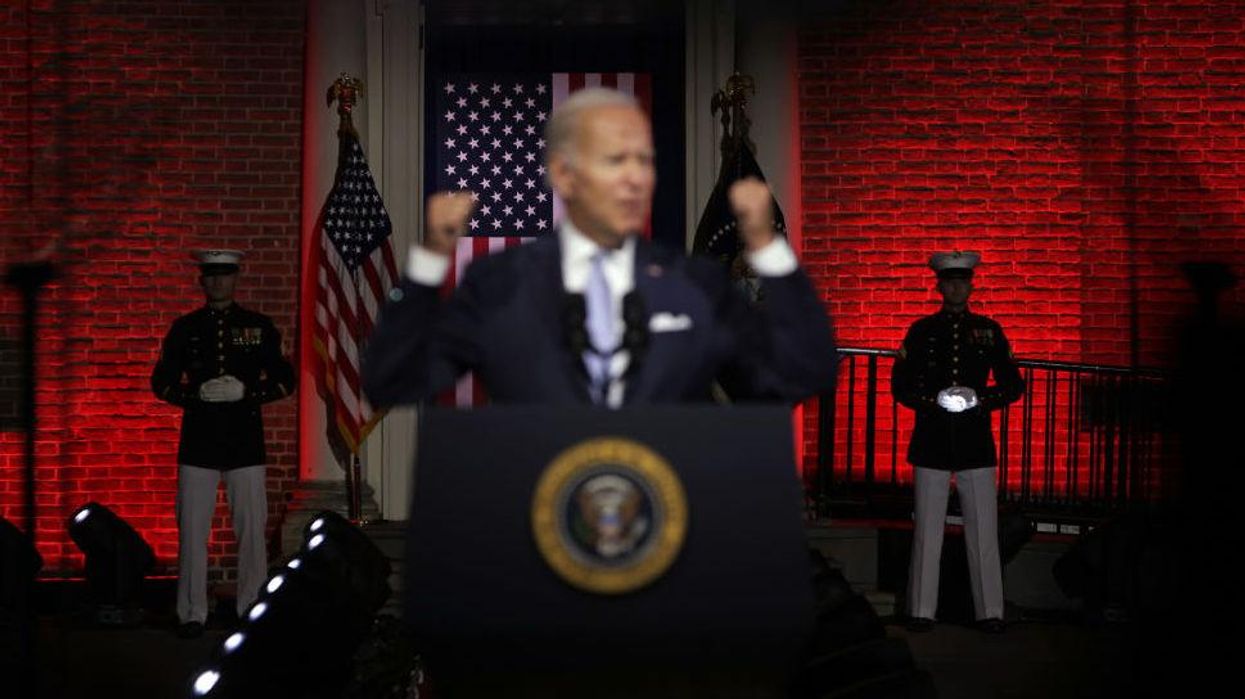
Alex Wong/Getty Images

Former top military and Defense Department officials are sounding the alarm over increased politicization of the "civil-military environment."
Eight former Defense secretaries and five former chairmen of the Joint Chiefs of Staff warned in an open letter Tuesday the U.S. is experiencing an "exceptionally challenging civil-military environment."
The military and civilian defense leaders attributed the growing problem to the COVID-19 pandemic, the end of wars in Iraq and Afghanistan, and in particular the sharp increase of politicization in America. Former President Donald Trump's refusal to accept the results of the 2020 presidential election was the culmination of harmful politicization, the leaders said.
To stave off increased politicization of the military, the leaders drafted 16 "core principles and best practices" they say best preserve the appropriate civilian-military relationship.
The list of "core principles and best practices" outlines the proper relationship between the military, civilian leaders, and the three branches of government. The list emphasizes that the military is restricted to carrying out lawful orders and duties, highlights the "significant limits on the public role of military personnel in partisan politics," and explains the role the military plays in presidential elections.
On that last point, the letter says:
During presidential elections, the military has a dual obligation. First, because the Constitution provides for only one commander-in chief at a time, the military must assist the current commander-in-chief in the exercise of his or her constitutional duty to preserve, protect, and defend the Constitution of the United States. Second, because the voters (not the military) decide who will be commander-in-chief, they must prepare for whomever the voters pick — whether a reelected incumbent or someone new. This dual obligation reinforces the importance of the principles and best practices described above.
The letter was signed by former Defense Secs. Ash Carter, William Cohen, Mark Esper, Robert Gates, Chuck Hagel, Jim Mattis, Leon Panetta, and William Perry; and retired Gens. Martin Dempsey, Joseph Dunford Jr., Richard Myers, Peter Pace, and retired Adm. Mike Mullen, all of whom served as chairmen of the Joint Chiefs of Staff.
The New York Times characterized the letter as "a thinly veiled indictment of Mr. Trump and the legions of his followers." But Mullen told the newspaper directly the letter "is not pointed at Trump."
Meanwhile, President Joe Biden became the target of criticism last week after he delivered a highly controversial speech during which he was flanked by U.S. Marines against a red-light backdrop. The optics invoked allegations of using military soldiers for partisan purposes.